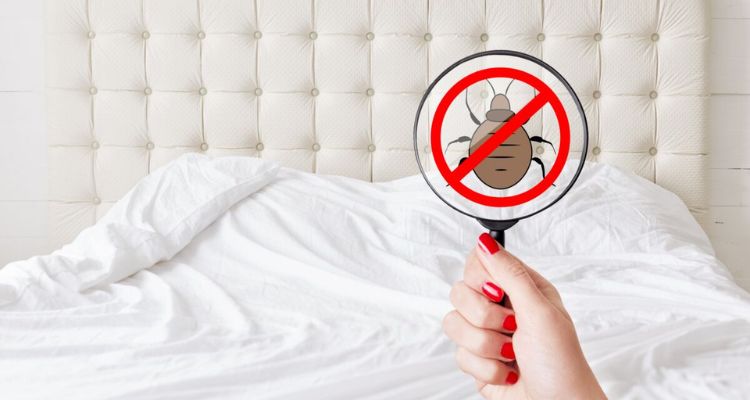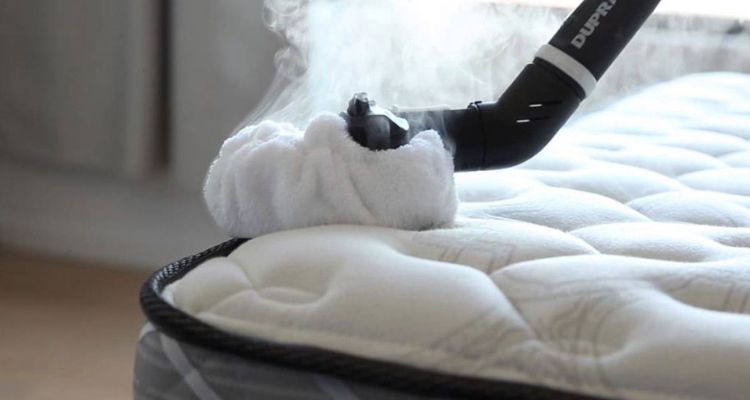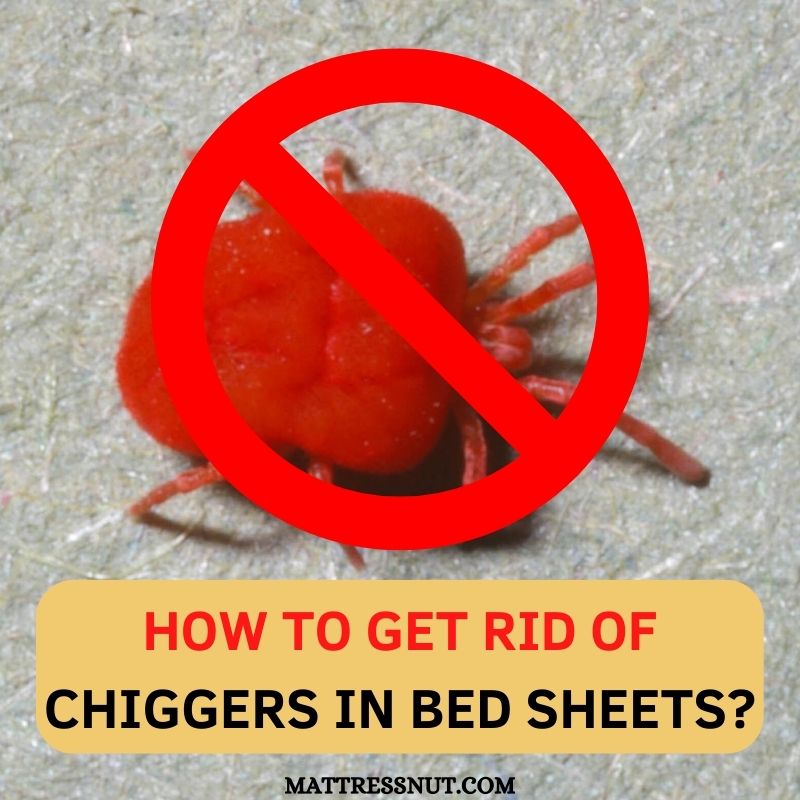Pests are the worst nightmare of a household and can destroy the peace of mind by invading tiny spaces at your place. They ruin your furniture while biting and passing many severe diseases to the host. The worst thing they do is destroy one’s sleeping time as they are most active at night.
One big nuisance in the pest family after bed bugs is chiggers. They are categorized as minute pests that the naked eye cannot see. Moreover, they like to attach to the host and feed off them, leaving them with aggressive red marks on the skin that itches and burns. They are mostly found in outdoor areas, and when people pass by, they attach themselves to their clothes or skin.
Although they don’t pose any serious threat to you, they can still infest your house, cause an irritating rash over your body, and destroy your sleep time. This guide will tell you what chiggers are and how you can eliminate them from your haven using environment-friendly ways.
What Are Chiggers?
The pesky little pests are not categorized as insect species, as they more likely fit in the arachnid category. However, the one thing distinguishing chiggers from insects is the four pairs of legs, which round up to eight, making them fall in the Arachnid family.

They have their place in the Trombiculidae family, which involves several species of mites. These pests go by many other names, out of which bush mites, berry bugs, harvest mites, and scrub-itch mites are the most common.
Unlike bed bugs, chiggers thrive in moist, humid, and grassy areas. Their favorite places to live and breed are forests, fields, and other similar open spaces like gardens or yards. A chigger survives best in temperatures ranging from 77-86 F. Any temperatures falling below 42 F can cause them to die.
A chigger mostly goes through three stages of life. The first stage is the larvae stage, which is the larvae that need to feed on a host. The warmth and nourishment from the host help the larvae chiggers to develop into the nymph stage.
This stage starts when the larvae have fed off the host and drop to the ground, where it evolves into a nymph. The last stages comprise these nymphs developing into fully grown adult chiggers. These adults feed upon plants and live in outdoor, moist areas.
If you think your house or bed is infested with chiggers, look for the following signs:
- Red spots of blood in the surrounding area, on bedsheets or your clothes.
- They are mostly found in clusters, so look for bite marks on the body around areas with tighter clothing like elastic underwear or ankles.
Chiggers Vs. Bed Bugs
Both chiggers and bed bugs are parasites that live off a live host. Although pretty similar in many things, some characteristics help us easily differentiate one from the other. Some of the major differences between chiggers and bed bugs are the following:
Preferable living conditions
While both love to bite and suck their host’s blood, they prefer different living conditions. The chiggers mostly like to live outdoors in a humid, grassy environment and thrive well between temperatures from 77 to 86 F. On the other hand, bed bugs prefer living in the dark crevices of hot, dry places and remain active at temperatures as low as 45F.
Body structure
Bed bugs are small brown creatures that have flat bodies. The chiggers, on the other hand, are minute creatures that are red-bodied. From a distance, they appear like red dots scurrying away from place to place.
Bite marks
The bite marks from both of these pests are completely different. A chigger bite is usually visible around body parts covered with tight clothing, such as ankles or waist areas. The bites appear in the form of red welts and the form of clusters.
On the other hand, the bed bug bites appear like a big line and raised red bumps. This is because bed bugs usually bite on the exposed skin of their host.
How Did Chiggers Get In My Bed?’
Chiggers might get inside your home and bed by attaching themselves to the host. They latch on to your clothes when you go out in the garden or on a hiking trip. When you go home and sit on your bed or furniture, they quickly hide away in the nooks and crevices.
If you don’t take a shower or change clothes after an outside trip, it is more likely that your bed and furniture may become infected with pests like bed bugs or chiggers.
Similarly, a chigger can invade your home with the help of pets. They love to latch themselves on the pets passing by, and when the pet sits on your bed or rubs itself against the furniture, they successfully transfer themselves onto the bed or any piece of the furniture they find the closest.
How Long Can Chiggers Live In Your Bed?
Chiggers mostly prefer outdoor environments and love to live in grassy fields. If you have an unkempt yard or garden, it can certainly harvest and invite the unwanted chiggers population. They attach themselves to humans when they are passing by.
If you forget to shower or change clothes before sleeping, these chiggers may fall on your bed. The good thing about the larvae of the chigger is they fail to survive without any warm host and cannot mate indoors. The chance of infestations is very low, but you must be cautious as their bites can cause serious itching and swelling.
How to Prevent Chiggers in Your Bed?
To prevent chiggers, it is important to understand the source or the place they invade your house or bed. These pests most likely attach themselves to the clothes of the human host or your pets when passing by. So, make sure you follow the following steps to get rid of them:
Spraying Sulfur powder:
You can eliminate the source that helps them breed in your garden or backyard. They love to infest a place where the grass is long and unkempt. Keep your garden clean and spray it with a generous amount of Sulfur spray. Not only will it get rid of them, but it will also ward off any other annoying insects that may bite or terrorize you.
Call Pest control
If you want to get rid of these mites, you might want to contact pest control. They will properly follow all protocols and rid your backyard of chiggers once and for all.
Wash your clothes and body
After coming home, don’t wear your outdoor clothes to bed, as they can infest it with chiggers. Instead, wash yourself and your clothes with warm water. If you suspect them in your bed, you can wash your bedding with hot water, as it kills them in an instant.
Are Chiggers Active At Night?
They become most active at a temperature between 77 and 86 F. It is a theory that bugs become more active at night as they are attracted to the increased amount of carbon dioxide we exhale during deep slumber.
They tend to bite on the body with tight clothing like sock lines or groin area. Their bites cause irritation and angry, red blisters all over the skin.
How Do You Treat Chiggers In The House?
If you suspect these pests in your house, you must follow these simple steps to get rid of them.

Strip off the bedding
If you wake up and find and find angry red marks from chigger bites, it is high time to get rid of them. Strip off your bed of all clothing, including bed sheets, pillowcases, and duvet covers. Throw them in the washing machine and wash them with the highest hot setting.
Vacuum the house
Next, you must vacuum clean all the furniture, including your sofas and bed. Make sure you vacuum underneath the bed, the mattress, and the tight corners of the headboards and footboards.
Don’t forget to vacuum the wooden floor or any rugs or carpets in the house, as they can help them to hide.
Spray White vinegar and peppermint mixture
To ensure the complete elimination of these chiggers, make a mixture of Vinegar and peppermint oil in a spray bottle. Spray it lightly on the surface of your hard furniture and wipe it off with a disinfecting cloth.
Can you get chiggers from dirty laundry?
Yes, it is possible to get chiggers from dirty laundry, especially if the clothes were worn in areas where chiggers are prevalent. The chiggers can attach themselves to clothing and hide in the folds and seams. When you handle the dirty clothes, the chiggers can transfer onto your skin and bite. To prevent this, wash clothes right after wearing in infested areas and dry on the highest heat setting.
Do dryer sheets kill chiggers?
Dryer sheets do not directly kill chiggers, but can help remove them from clothing and bedding. The chemicals in dryer sheets can help detach chiggers from fabrics. Run infested items through a hot dryer cycle with a dryer sheet for 35-40 minutes to both kill and remove chiggers. Then wash the laundry with hot water and soap to get rid of any remaining traces.
Conclusion
They are minute organisms that are rarely seen by the naked eye. The only thing that gives evidence about their existence is the bite marks on the host body. The bites are incredibly itchy and can cause an allergic reaction in some people.
Still, you need to be careful as a female can lay up to 15 eggs daily and cause serious bite marks around the whole body. If left untreated, these bites can even become infectious. Stay alert and if you find any sign of chiggers biting on your body, take safety measures to eliminate them from your house then and there.
How to get rid of chiggers in bed sheets FAQs
What Bugs Bite You In Your Sleep?
It is known that these bugs prefer nighttime to hunt their prey. Some commonly known bugs that bite your sleep are bed bugs, Mosquitoes, Fleas, Chiggers, and Scabies. These bites can ruin one's peaceful night and cause severe itching and swelling of the skin. In some cases, they can transmit harmful diseases like Malaria or Zika viruses to their host.
Do Chiggers Lay Eggs On Humans?
The good news is they do not lay eggs on humans. They never burrow on your skin but only feast upon the liquefied skin cells of humans. Once they have fed, a rash is formed on the human skin, but by then, they have already detached themselves from the host.
Do Chiggers Go Away On Their Own?
It is unlike for them to set up a camp in your home. They like to live outdoors in a moist, green habitat. The larva of these chiggers thrives on human blood. Once it becomes an adult, it will leave your bed to find a suitable place to live. Still, a female chigger can lay up to 15 eggs per day. Therefore, you need to be extra cautious and get rid of them as soon as possible.
Should I Wash My Sheets If I Have Chigger Bites?
Yes, that is the more appropriate solution to your chigger problem. If you find chigger bites on your body in the morning, you need to strip off the whole bed of the sheet, pillow covers, and any other bedding. Then, wash them with hot water and eliminate these red-dotted little pests.

